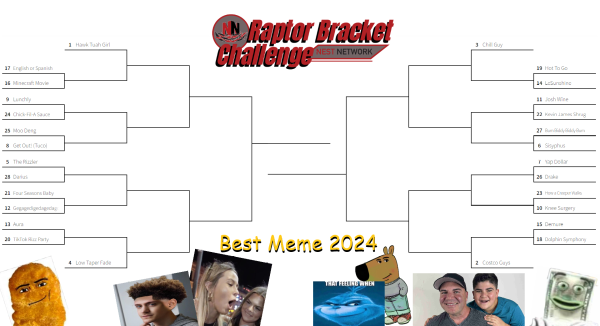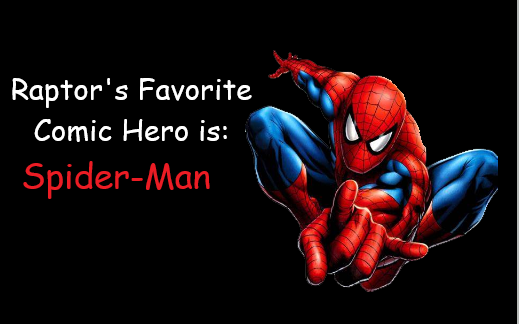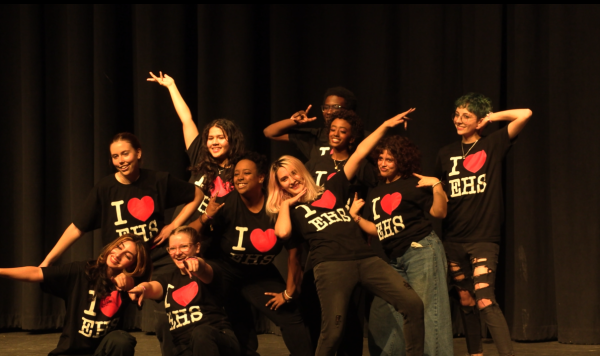Hate Andrew Tate?
In December 2022, Andrew Tate was detained on charges of organized crime, human trafficking, and rape. But this wasn’t a shock to many.
Over the course of the last year, Andrew Tate has become one of the most widely discussed and contentious figures of this decade, often being more searched than Donald Trump, Joe Biden, and COVID-19 on Google. Tate has quickly become the face of the burgeoning Redpill Movement, explaining the red pill movement. While most are able to dismiss Tate as the typical misogynistic man, there is a substantial portion of the male youth population that is captivated by his messaging. So substantial, in fact, that schools all over the country are holding “Andrew Tate Assemblies’ and discussing him in PTA meetings in attempts to reduce the impact of his influence. But what exactly makes Andrew Tate so controversial? How did he amass such widespread notoriety? And what can be done to limit his influence?
Andrew Tate (born December 1, 1986), and his younger brother Tristan Tate were raised primarily in Chicago, IL, and Goshen, IN before the divorce of their parents which brought them to England. Tate’s father, Emory Tate Jr., was an American chess International Master. Following in the footsteps of his father, Andrew Tate began playing chess at the age of 5 and competed in adult tournaments as a child. Due to the less prevalent chess scene in England, Tate began pursuing martial arts, eventually becoming a world-champion kickboxer.
Unfortunately, Andrew Tate found that despite reaching the pinnacle of his athletic endeavors, kickboxing was not lucrative enough long-term for him to be where he wanted to be financial. As a result, Tate and his brother entered the entertainment industry, appearing on various reality TV shows and competitions throughout Europe. It is through these shows that the world was introduced to the personality of Andrew Tate. One such reality show, Big Brother (UK), removed Tate after just 7 days due to “racist and homophobic” tweets that resurfaced along with the release of a video that depicted Tate beating women (though he would later claim that he was engaging in role-play).
This backlash led to the downward spiral that has created the Andrew Tate we know today. He knew he wanted to be rich, but he didn’t quite know how to get there. Eventually, the former kickboxer landed on the idea of starting a webcam business. According to various interviews, he began by flying five of his girlfriends to the UK, promising each of them that they would become rich doing webcam modeling for him. Three of them declined and the two that stuck behind got to work quickly, and he claimed that the women who worked for him did so because he “loved” them. Unfortunately for him, this is a textbook example of what authorities define as “The Loverboy Method,” a tactic that human traffickers use to manipulate their victims into falling in love with them in order to exploit them.
Human trafficking, as defined by the Department of Homeland Security, is anything that “involves the use of force, fraud, or coercion to obtain some type of labor or commercial sex act.” Such crimes often involve “manipulation, false promises of well-paying jobs, and romantic relationships.” After growing his webcam business to include over 75 women, Tate claims that he was generating over $600,000 a month. After that, he set up his own online self-help program, “Hustlers University,” to show men how to make money and get along sexually and intimately with women. Although the program has been out of use for more than a year. Since then, Hustler’s University has been replaced with “The Real World.” Tate has influenced subscribers of his online programs to re-post thousands of clips of his content to social media platforms daily, giving the impression that he is very popular and influencing TikTok’s algorithm to put Tate’s content higher in news feeds to get more views.
What’s more interesting than his backstory, though, is the significant influence Tate has on the ideologies of young people all over the world. Tate gained more than five million subscribers and more than 14 billion views on TikTok alone before he was banned from virtually every social media platform. At one point, he was the most searched person on the planet. He was able to leverage this fame into exorbitant amounts of wealth. But what makes his messaging so powerful? Why are so many young men willing to give away money to such a controversial figure?
The former kickboxer, who is now 35 years old, does not shy away from the label “misogynist” and has spoken about how men and women are intrinsically unequal and have strictly outlined roles that they must play in society. He also asserts that rape victims “must bear some responsibility” and that “the woman belongs to the man.” He has always had issues with women, and he has shared many other controversial, sexist, and misogynistic ideas on social media. But as much as these may be the most pervasive and viral clips on social media, this isn’t the reason Tate has become so large. Between every bombastic, sexist claim about women, there are hours of advice to young men about how to navigate the modern dating market, how to accrue massive wealth, and how to become a “high-value man.” In short, he tells young men exactly what they want to hear. The reason his messaging is so captivating in particular is that, as opposed to the myriad of other self-help gurus that have offered similar advice, Tate actively and visibly embodies the lifestyle he follows. Every mention of his Bugatti, four world champion kickboxing belts, or multiple mansions is a reinforcement, in the eyes of his audience, of the validity of his claims. More importantly, it reinforces the idea that they too can rise to the top of the capitalistic food chain and escape their present struggles.
In 2022, Andrew Tate was brought back into the spotlight not only for his presence on social media but also for the criminal behavior he has maintained or been a part of. After a bizarre series of events that began with him tweeting directly at Greta Thunberg bragging about the emissions of his fleet of expensive cars, Tate was detained in Romania and under investigation for human trafficking and rape. After a raid on two Romanian properties, Tate and his brother Tristan were arrested on charges of human trafficking, rape, and forming an organized crime group, according to a statement from a Romanian anti-organized crime unit.
Andrew and Tristan Tate are both prime suspects in a criminal investigation, which has been ongoing since April 2022. Romanian prosecutors increased their detention from 24 hours to 30 days following a challenge from the Tate brothers. A Romanian court upheld their detention.
Tate has gone through a lot of ups and downs since then. His attorneys, Tina Glandian and Eugen Vidineac have been reported to have repeatedly argued that their client should be released because there is insufficient evidence against them; however, the Romanian court has once more denied his release. The court also said that if the Tate brothers get out, they might try to run away from Romania. As a result, the Tate brothers spent 95 days behind bars. On April 3, 2023, they were released from jail and placed on house arrest.
And though Andrew Tate is still technically under Romanian custody, his influence on the youth remains immense. With every tweet, Tate directly reaches millions of young people globally. Nonetheless, in recent months, Tate’s 6 million follower Twitter account has been largely reduced to posting cryptic and nonspecific inspirational quotes, along with retweeting edits of former clips of his videos. This is a far cry from the outwardly misogynistic, ostentatious behavior he exhibited before his incarceration. This may very well change depending on the outcome of the investigation, but it seems, at least for the time being, that Andrew Tate is committed to reforming his public image to some extent. If the investigation results in an acquittal, Tate is poised to reclaim the level of influence he had before his incarceration. Despite virtually every social media company maintaining their bans against Tate’s content, various reports have shown that his content and ideology continue to spread. This does not bode well for the anti-Tate crowd. Even more than he is an individual, Tate is a symbol for the movement against gender equality and mental health awareness. As long as he remains relevant, advocacy for these causes remains in jeopardy, and the future of the youth mindset remains uncertain.

Described as passionate and independent, editor Rhyan Herrera has been in Nest Network for three years. After this year, she plans on going to a college...

Chigozie Ozor is a senior at Eaglecrest who is entering his second year in Nest Network. Chi finds a lot of inspiration in music with artists such as Kendrick...











